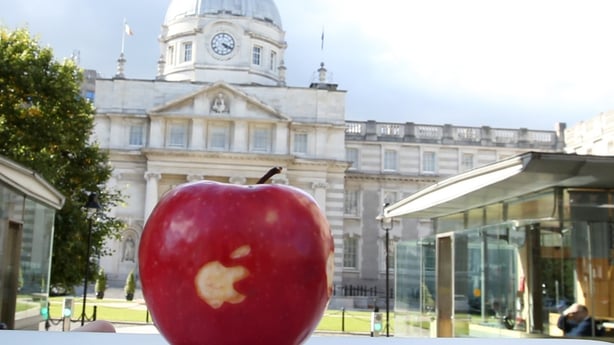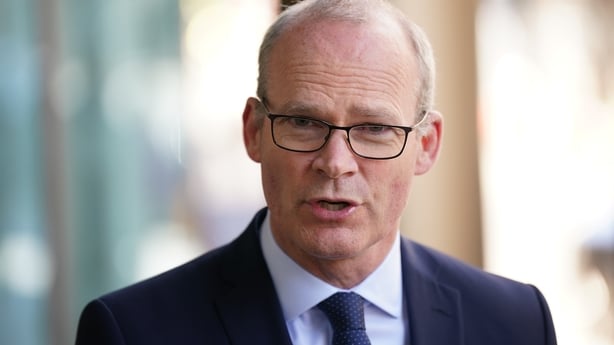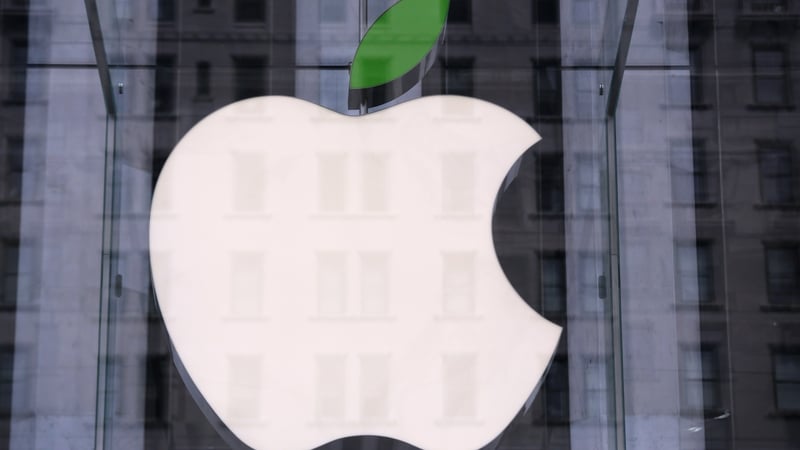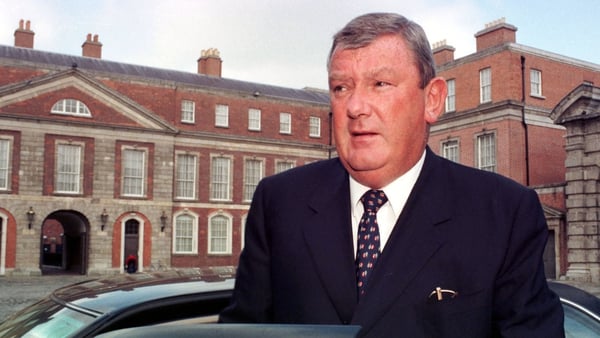The Advocate General of the EU's highest court has proposed that the court should set aside the judgment of the lower General Court in the Apple tax case and refer it back to the General Court for a new decision.
The opinion follows an appeal by the commission after the General Court overturned three years ago the commission's finding that the tech giant had underpaid taxes totalling €13.1 billion due to Ireland between 2003 and 2014.
An Advocate General's legal opinion is not binding, but in most cases is later reflected in the court’s final judgment.
If confirmed by the court, the development would mark a significant setback to Ireland and Apple's defence that the company did not receive special treatment from the Irish state, in breach of EU state-aid rules.
Taoiseach Leo Varadkar said the legal process in the case is not over yet and it could be years before the final decision is made.
He said the Government's position remains that it never had special deals with individual companies.
In a statement, an Apple spokesperson said the company thanked the court for its time and ongoing consideration in this case.
"The General Court's ruling was very clear that Apple received no selective advantage and no State aid, and we believe that should be upheld," the spokesperson added.
In his opinion, Advocate General Giovanni Pitruzzella proposes that the Court of Justice of the EU should set aside the judgment of the lower General Court and refer the case back to the General Court for a new decision.
We need your consent to load this rte-player contentWe use rte-player to manage extra content that can set cookies on your device and collect data about your activity. Please review their details and accept them to load the content.Manage Preferences
According to the Advocate General, the General Court committed a series of errors in law when it ruled that the commission had not shown to the required legal standard that the intellectual property licences held by Apple subsidiaries based in Ireland and related profits generated by the sales of Apple products outside the USA, had to be attributed for tax purposes to the Irish branches.
The Advocate General also says the General Court failed to assess correctly the substance and consequences of certain methodological errors that, according to the Commission decision, undermined the validity of the tax rulings.
The Advocate General therefore says that in his view it is necessary for the General Court to carry out a new assessment.
Seven years ago a European Commission probe found that two tax rulings in 1991 and 2007 issued by Revenue to the firm had "substantially and artificially lowered the tax paid by Apple in Ireland since 1991".
The commission found the technology company had underpaid taxes totalling €13.1 billion between 2003 and 2014 and ordered it to pay the money to Ireland along with €1.2 billion worth of interest.
Apple and Ireland appealed those conclusions to the EU's General Court and the case was heard over two days in September 2019.
The following July the court issued its judgment annulling the commission’s findings.
However, the commission did not accept the decision and in September 2020 announced that it would lodge an appeal.
It was heard in May of this year, with the Advocate General’s opinion issued today. The opinion is not binding, but in an estimated 80% of cases it is reflected in the court's final judgment.
It is expected that the court will issue its final judgement in the case in around six months' time.
After the original commission ruling, the €13.1 billion plus interest was paid over by Apple in 2018 into an escrow or temporary third-party holding account where it remains today.
According to the recent report of the Comptroller and Auditor General, at the end of December the total value of the assets reduced last year by €259m to €13.374 billion from €13.633 billion in 2021.

This was due to the significant increase in yields across global fixed income markets, and fund operating expenses.
Ireland's position on EU Apple tax case unchanged - McGrath
Commenting on today's opinion, Minister for Finance Michael McGrath said it was important to bear in mind that it does not form part of the Court of Justice of the European Union judgment but is considered by the court when arriving at its final ruling.
"My department and the State's legal team will consider the full Opinion of the Advocate General in detail," Mr McGrath said.
"It has always been, and remains, Ireland's position that that the correct amount of Irish tax was paid and that Ireland provided no State aid to Apple," he stated.
"We now await the judgment of the Court of Justice of the European Union on this matter," he added.
Read more: Explained: EU Commission's appeal on Apple tax case

Minister for Enterprise, Trade and Employment, Simon Coveney said he does not believe today's legal opinion will deter other multi-nationals from investing in Ireland.
Minister Coveney referred to the Apple case as an historic one and said Ireland's corporate tax rate for large multi-nationals will change from January 1, as part of an agreement already struck with the OECD.
He said Ireland's reputation internationally is strong, resulting in significant on-going investment by multi-national companies: 140 new projects this year, 52 of which were being pursued by companies which hadn't previously been based in this country.
"The news of multi-national investment in Ireland this year is good and it's strong, and I think that reflects how Ireland is seen internationally in terms of the competitiveness of Ireland as a place to do international business for the future," Mr Coveney said.
He echoed the Government's position that the process was still on-going and today's legal opinion was a stage in that process.
"This is an opinion. It's not a court ruling," Mr Coveney said.
"The Government's position and the State's position remains the same. We don't believe Apple received preferential treatment. We believe they paid the appropriate amount of tax in that time.
"This is a legal opinion of the Advocate General, so our case remains the same. We will have to await a judgement from the Court of Justice and obviously respond to that when it happens."
Additional reporting Mícheál Lehane, Paschal Sheehy






